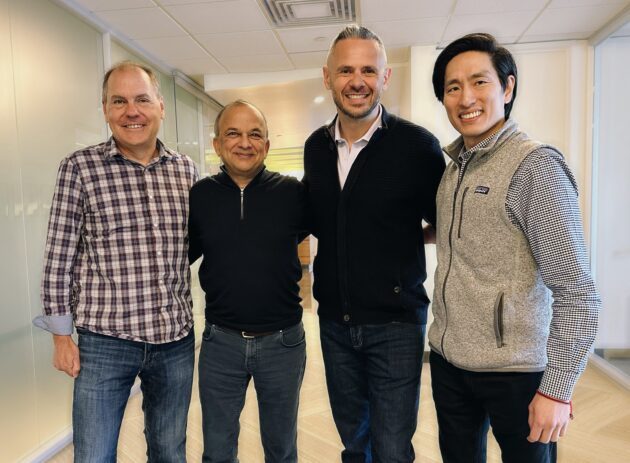
A new startup out of Seattle called Tektonic AI has raised $10 million to fuel development of its software that automates business operations with the help of artificial intelligence technology.
There are plenty of existing tools that companies use today to automate repetitive tasks, such as robotic process automation (RPA) software. But they are limited when it comes to more complicated workflows with dynamic processes and data.
That’s where Tektonic AI comes in. The 5-person startup is building AI agents that understand natural language queries and help employees speed up how they get work done across various applications and systems.
The company is initially focused on helping sales and revenue teams complete tasks such as quoting or renewals.
With the proliferation of software applications over the past two decades, workers are spending more time jumping between different apps, said Tektonic founder and CEO Nic Surpatanu.
Up to this point, he said, there hasn’t been an effective way to streamline a lot of the tedious work required when making those apps work together, especially with complex data or contextual requirements that are constantly changing.
“People are manipulating tables and forms to get their job done,” he said. “I feel that there has to be a better way.”
Surpatanu said generative AI isn’t yet good enough to help a company with precisely pricing a product, for example. But it can understand a user’s request to find an answer via a computational program.
Tektonic wants to be the bridge between those two activities.
“I believe this is the future of how we’ll do this tedious work,” Surpatanu said.

Tektonic is one of several newer AI startups aiming to change the way companies take advantage of their data.
In a recent post, Box CEO Aaron Levie wrote about how generative AI can help companies make sense of unstructured corporate information.
“Multimodal models especially allow us to process this content using a computer and essentially perform any task that a human can, but at infinite scale and speed,” he wrote. “This is utterly game-changing when working with information in the enterprise.”
Surpatanu was most recently chief product officer at cybersecurity company Tanium, and previously was a senior vice president at UiPath, a leader in RPA. He also spent nearly 12 years at Microsoft in various engineering leadership roles.
Asked about competition from other startups or larger tech companies such as UiPath or Microsoft, Surpatanu said Tektonic differentiates itself by focusing on automating more complicated workflows.
“Many established companies are embedding AI copilots in their existing applications and systems (e.g., copilot in Excel). And most enterprise GenAI startups build to a specific vertical (e.g., norm.ai),” Surpatanu wrote in a recent LinkedIn post. “These approaches enhance productivity within their vertical walled gardens and may even consolidate away some specialized tools. But they do not solve the business processes that cross application and expertise boundaries, nor eliminate digital overload and application sprawl.”
Tektonic does not yet have paying customers. It is targeting companies with more than $50 million in annual revenue.
Seattle venture firm Madrona and Point72 Ventures, which is increasingly investing in the Seattle region, led the seed round.
“The emergence of generative AI models with the ability to reason across data silos within applications and orchestrate tasks allow us to rethink process automation taking it to places it has never been before,” Madrona wrote in a blog post.
Tektonic got its start inside Madrona Venture Labs, the startup studio within Madrona.
Tektonic co-founder David Hsu is a former engineering director at StubHub and also spent time at Google. Mario Blendea, head of engineering, was previously an engineering manager at Meta.

